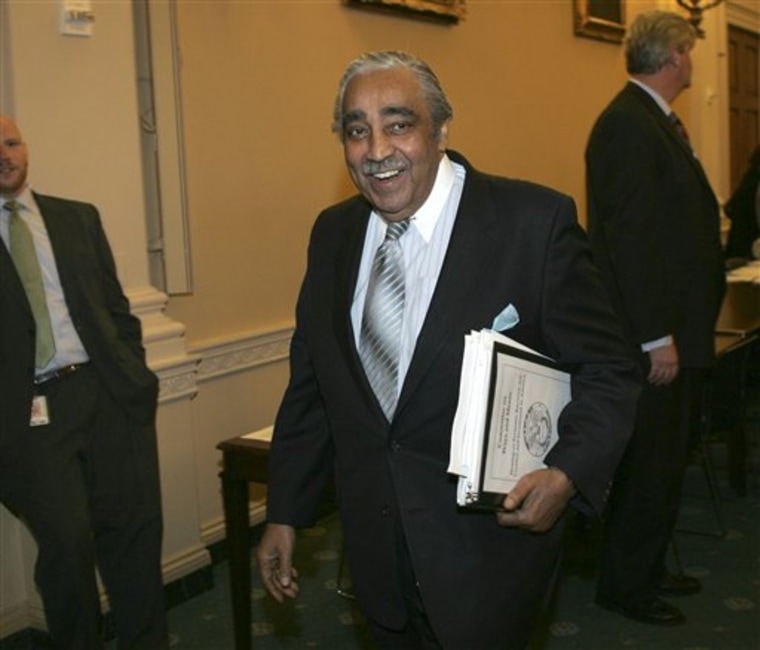A bevy of governors, mayors and interest groups came to Capitol Hill Wednesday, pressing for tens of billions of dollars for new public works projects and help for cash-strapped states, among other ideas aimed at boosting the economy.
They found sympathetic ears at a pair of House hearings — even from some Republicans — for ambitious plans to build roads and water and sewer projects, extend jobless benefits and help states cope with multibillion dollar budget shortfalls.
Democrats are eyeing a huge economic stimulus measure, either in a postelection session next month or as the first item of business next year. They are focusing more on the spending side of the federal ledger, as opposed to the tax rebate checks sent out earlier this year, with a key focus on generating new jobs.
“Every billion dollars in spending on infrastructure, on highway and transportation expenditures does result in 35,000 new jobs,” said Rep. John Mica, R-Fla., at a hearing of the House Transportation and Infrastructure Committee.
Before another panel, New York Gov. David Paterson, a Democrat, pressed for billions to help close a projected $12.5 billion budget gap caused in large part by the chaos on Wall Street. He said falling tax revenues will mean harmful cuts to in health care, anti-poverty programs and other state services.
“The cruel irony is that at the time when citizens need their state governments the most, state governments are least equipped to help them because of plummeting revenues,” Paterson said. “When states are hurting, our national economy suffers.”
New Jersey Gov. Jon Corzine, a Democrat and former chairman of Goldman Sachs, called for a deficit-financed stimulus measure tagged at up to two percent of the size of the economy — or about $300 billion — with a heavy emphasis on infrastructure projects such as road construction, railway repairs and water and sewer projects.
“This time of adversity should be translated into a time of opportunity with respect to our infrastructure projects,” Corzine told the transportation committee. “We should not lose the opportunity to invest in our future, our children, and our grandchildren’s future.”
But the immediate future of any stimulus measure is murky at best, given resistance from President Bush to the spending-focused approach favored by Democrats. While Democrats say there’s no time to waste, given the faltering economy, they may have to wait until January to enact their plans — if Barack Obama is elected.
Congressional aides say an extension of unemployment benefits is likely next month, but that a large stimulus bill is unlikely to pass while Bush is in office.
“A lot of the claims that are made about how much transportation could actually help build the economy are overblown,” said White House Press Secretary Dana Perino. Generally on new stimulus measures, she said the White House has not “seen a package that we could support.”
“It remains a mystery to me whether this hearing is merely a fact-finding expedition or whether it is laying the groundwork for action in Congress next month on a stimulus package,” said Rep. Jim McCrery, R-La., a member of the House Ways and Means Committee. “If our goal is to make law this year, then I want to remind my colleagues that it is of little use to draft a package ... if it cannot also pass the closely divided Senate and be signed by the current occupant of the White House.”
About the only witness not coming to lawmakers with his hand outstretched was South Carolina GOP Gov. Mark Sanford, who urged fiscal restraint as the government’s budget deficit soars.
“As the old saying goes, the first step to getting out of a hole is to quit digging,” Sanford said before the Ways and Means panel. “I think this certainly applies to the mountain of debt now facing our country.”
At the transportation committee, there was bipartisan support for tens of billions of dollars for infrastructure projects such as highway construction, water and sewer projects and modernization of schools and public housing.
There, lawmakers and witnesses such as National Association of Manufacturers President John Engler, former Republican governor of Michigan, touted public works projects for both creating jobs and making the economy more efficient.
Louisville Mayor Jerry Abramson, representing the U.S. Conference of Mayors, presented lawmakers with a request for $90 billion for various infrastructure projects and other programs.
